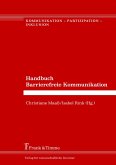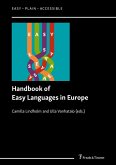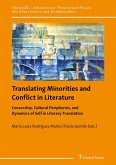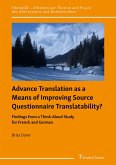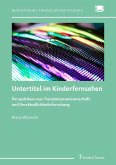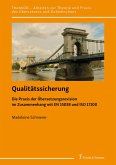Linguistic minorities are everywhere, and they are diverse. In this context, linguistic mediation activities - whether translation or interpreting - are key to the social inclusion of any kind of linguistic minority. In most societies autochthonous linguistic minorities coexist with foreignspeaking minorities and people with (or without) disabilities who rely linguistically or medially adapted on texts to access information. The present volume draws on this broad understanding of the concept of linguistic minorities to explore some of the newest developments in the field of translation studies and linguistics. The articles are structured around three main axes: • accessibility of content, especially audiovisual translation • intralingual translation, including initiatives regarding plain language, easy-to-read and easy language • mediation for minorities in a broader sense and language ideologies. María Pilar Castillo Bernal is an Assistant Professor at Universidad de Córdoba (Spain). Her research focuses on the translation of German literature, language for specific purposes, and technical texts. Marta Estévez Grossi is a postdoctoral research fellow at Leibniz Universität Hannover (Germany). Her main research interests are public services interpreting, migration linguistics, language accessibility and linguistic simplification.
Dieser Download kann aus rechtlichen Gründen nur mit Rechnungsadresse in A, B, BG, CY, CZ, D, DK, EW, E, FIN, F, GR, HR, H, IRL, I, LT, L, LR, M, NL, PL, P, R, S, SLO, SK ausgeliefert werden.



